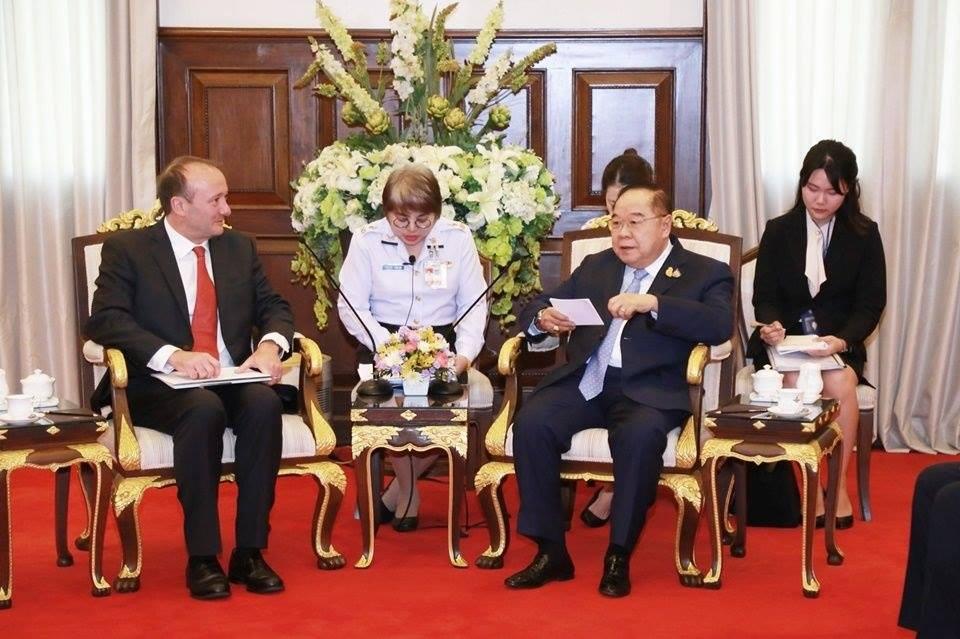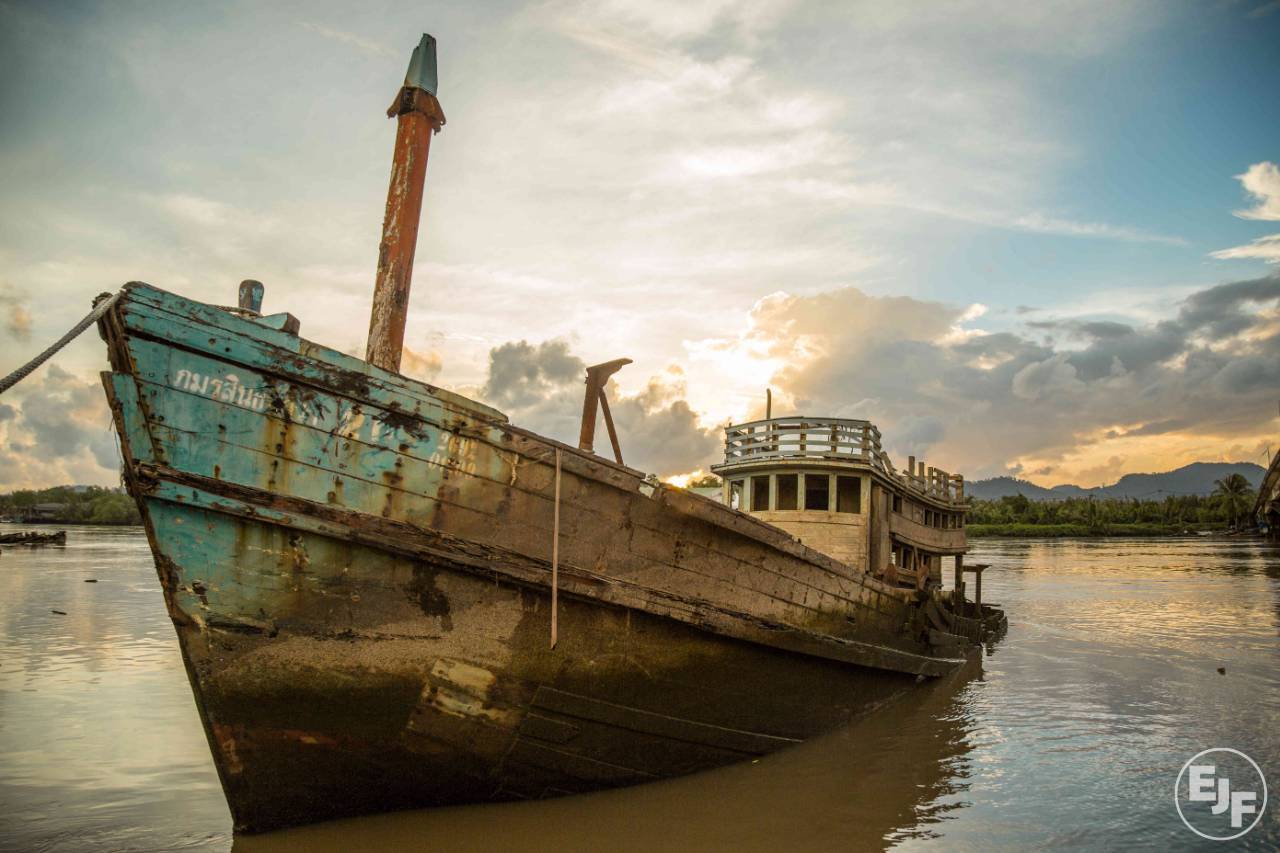
Thai government resistance to damaging trawler lobby is to be applauded
Last month the Royal Thai Government publicly committed to protect and build on recent fisheries reforms. Thailand has implemented substantial reforms, designed to eradicate illegal fishing and address human rights abuse at sea. However, in recent months the National Fishing Association of Thailand has been lobbying the government to roll-back many of these progressive measures. This show of renewed political will to protect and strengthen the reforms is a welcome sign.
I have heard first-hand accounts of the dark past of Thailand’s fishing industry. Men, hanging their heads in despair, told EJF how they were beaten and abused, living in fear for their lives. They had seen crewmates killed and maimed, and been forced to remain silent. They had jumped overboard, knowing that they were likely to die, but choosing it over life aboard.
It was their voices that I first thought of when I heard the news that NFAT is attempting to derail the sector’s hard-won reforms.
Thailand cannot return to that.
The first of NFAT’s demands is that all restrictions on crew and catch transfer at sea be lifted. This would allow abusive vessel owners to swap enslaved migrants between vessels so that they almost never made landfall, so that there was virtually no chance of escape, or detection by the authorities. Illegally caught fish could be laundered between boats so it was no longer traceable, making its way into international supply chains.
How do I know? Because I’ve seen it all before.
NFAT also want to be allowed to fish for much longer and for the obligation to record exact fishing locations to be dropped. Vessels that lost their licenses in 2015 should be allowed to return to fishing, they claim. Many of these were sanctioned for illegal fishing, others were ‘ghost vessels’ with the same registration documents as legitimate vessels, and almost certainly using this confusion of identity to cover illicit activities.
Other demands follow the same theme. The annual inspection of vessel and crew should be abolished, they say, and operators should be allowed to revise crew lists for many hours after leaving port. This would allow unregistered crew – potentially trafficked migrants – to board after vessels have passed through ‘port-out’ inspections.
What possible reason is there for scrapping these safeguards other than to obscure the fact workers’ human rights and national laws are being disregarded?
A blow to the economy
The seafood industry is vitally important to Thailand’s economy. If the new government wishes to protect this economic powerhouse it must protect these reforms. A return to Thailand’s dark past would bring international condemnation and threaten trade deals.
The European Commission only this year lifted its ‘yellow card’ – a formal warning for illegal fishing that could lead to import bans to the EU. With a new government now in place, the Commission will be watching to see if this means that progress will continue to grow, or whether the work of the past will be swept away. Yielding to NFATs demands will certainly mean the latter.
Thailand was well on its way to becoming a leader in the region. In 2018, it became the first country in Asia to ratify the International Labour Organization’s convention, which promises protection to the victims of forced labour and sanctions for the perpetrators (P29). This year, it ratified the ILO’s Work in Fishing Convention C188, which sets basic standards of work in the fishing industry, again the first country in Asia to do so.
The ‘Port in Port out’ network – under which all fishing vessels above 30 gross tonnes must report for inspections at the start and end of every trip – has the potential to be a powerful tool to combat illegal fishing and associated labour abuses.
The Royal Thai Government should take pride in the progress that it has achieved. It must not be lost to the self-serving, short-term interests of a few rogue companies.
Despite their bluster, NFAT does not represent Thailand’s entire fishing industry. Key business networks – including the Thai Chamber of Commerce and Thai Fishery Producers Coalition – have recognised the reforms as a turning point for Thailand’s fisheries sector that helped secure renewed trust from many import countries.
Businesses who experienced direct impacts when Thailand’s image shifted from leading seafood producer to destination for slavery and human trafficking have stressed the importance of continued commitment to tackling illegal fishing.
A blow to fish stocks
The reforms implemented by the Royal Thai Government have also boosted fish stocks, helping to create a sustainable fishery that future generations can continue to rely on.
Although more studies are needed, small-scale fishers have told EJF that they are seeing a change at sea. Fish are more numerous, they say, are increasing in size, and they are catching a wider range of species.
“I feel that after the regulations came into place seafood stocks are looking healthy again,” one small-scale fisher told us. He added: “This makes me happy. I am also happy that this will get passed on to our children in the future.”
This is what Thailand stands to lose.
The reforms brought in by the Royal Thai Government have had a hugely positive impact on Thailand’s fisheries and the entire region of Southeast Asia. They have been crucial to the country’s economy, fish stocks and international reputation.
Thailand could be a strong fishing nation, with healthy fish populations sustainably fished by a thriving fleet. The government should be proud to protect that legacy.

